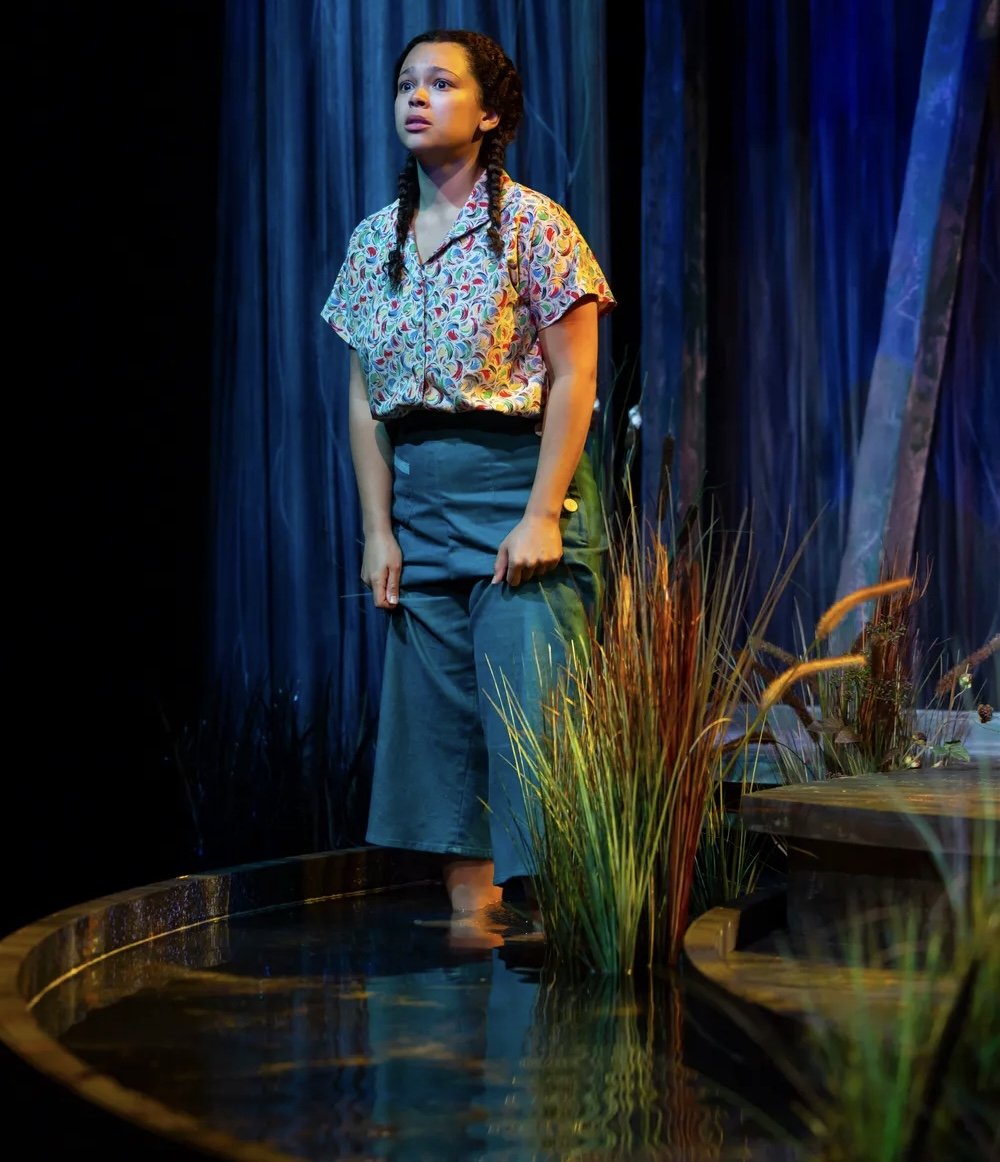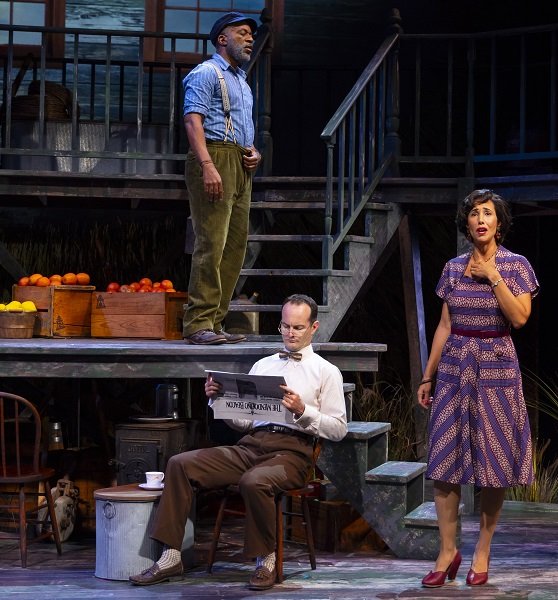Something in the Water
I want to write about water. I want to write about never having seen it this way. A river that runs through a stage play. A river that characters dive into and emerge from. A river that ebbs with magic and flows with fortune telling, curving through time and space from a pre-Civil Rights era Mendocino County and continuing on at the McCarter Theater in Princeton, New Jersey until October 7th. This river is a requirement from playwright, Eisa Davis, who asks for just a few things in the stage directions of her Pulitzer nominated production, Bulrusher: oranges, apples, live guitar and water.
The McCarter Theater production of Bulrusher, directed by Nicole A. Watson, delivers on Davis’ requests in abundance, bringing the outside inside in droves. “Watch where you sit,” one women said to another in the lobby. “I heard you might get wet.”
“I’d love to get to splashed,” I joked to myself in response to the 80 degree not-quite-end-of-Summer day.
I had arrived early to watch people enter the theater, most commenting about the set design after pointing and sharing visceral ooohs and ahhs. “Honey, this set is genius,” said the man behind me. “It’s like a starring character,” said his wife. It is multilevel and multimodal, subtle yet complex, water birthed from the deep mind of scenic designer, Lawrence E. Moten III. What we see is the fourth iteration of his vision Moten later tells us in the after show chat. He’s giving us forests, woodlands, grass glades, and wet meadows–welcoming us, then submerging us, and transforming us, then lifting us back up for air. Moten reminds us to respect the healing power of water in all its forms whether it's in a bowl or a bay. If you only go to see the set design of Bulrusher, you will leave refreshed.
However if you stay, and of course you should stay, then you get to meet your protagonist, Bulrusher (Jordan Tyson) a waterbearer, a wellspringer, a witch. She is a twist on the trope of the magical negro– very much magical, able to predict people’s futures through the water, but she is very much not any white man’s supportive sidekick–in fact she is the opposite–side kicking a white man all over the stage at one point. Tyson’s performance is crystal clear–she helps us to appreciate our anti-hero’s fish-out-of-waterness, while performing both in and out of the river with ease.
Baby Bulrusher was abandoned in a basket on the very river that flows through the stage–(think Moses, think Romulus, think Sargon). Until the baby floats into the town of Boonville–a real-life place in Northern California with its own customs, and practices, and language–Bootling. Bootling is a local dialect with over 1000 secret words and phrases. It’s a Zora Neale Hurston-seque type play, where language is centered. Your playbill even comes with a translation guide for the “linguistically curious,” though the guide is not necessary to understand the production, it does help us to understand the people on 1950s Boonville.
All grown up now, but still searching for her source, Bulrusher, meaning belonging to the marsh, spends her time selling oranges and apples and hanging out at a brothel with Madame (Shyla Lefner), Logger (Jeorge Bennett Watson), Boy (Rob Kellogg) and her surrogate father, Schoolch (Jamie Laverdiere). Even among the sparkling ensemble of a cast, in my opinion Watson simply glistens.
Bulrusher is the only Black woman in the town of Boonville and she has never seen anyone who looks like her until Vera (Cyndii Johnson) arrives from Alabama as her mirror reflection. Vera is the gravitational force that shifts Bulrusher’s perspective on identity and love and race and family, creating a flood of emotion that challenges Bulrusher's place in the depths of Boonville – for better or worse.
There is definitely something in the water of Bulrusher. And though I did not get splashed like I wished, I did get baptized. As the theater emptied, I stayed seated to let the poetic prose wash over me. Like the beach, I need to see it again and again and be in it again and again—how could one ever go to the water just once. People all over the world know the incredible healing power of the lakes, the rivers, the oceans and the seas. A mysterious power that deserves to be protected and cherished and studied as there is still so much about water that we don’t understand. And when I finally did step out of the theater, it was raining—of course I was. And I didn’t have an umbrella—of course I didn’t, so I just walked in it. And got soaked by it. And gave thanks for water. Ase.

